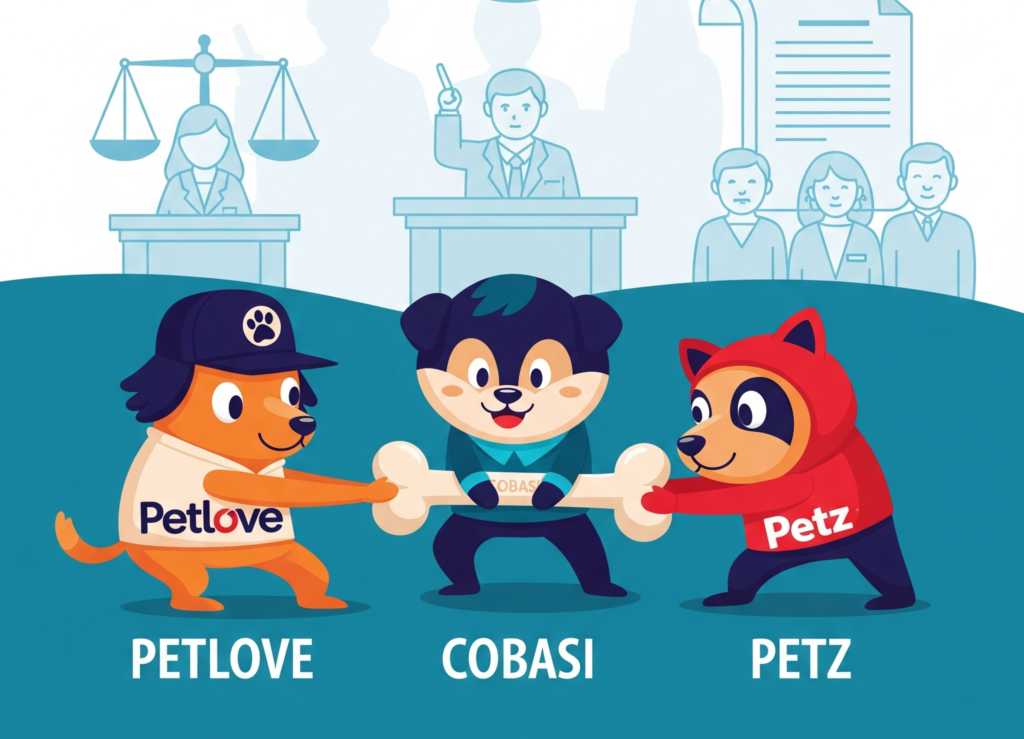
In recent developments within the Brazilian pet retail sector, Petlove, one of the leading online pet product platforms, filed an appeal with the Administrative Council for Economic Defense (Cade) concerning the acquisition of Petz, a major brick-and-mortar pet retailer. This move has sparked a heated debate among industry stakeholders, with Cobasi and Petz themselves firmly denying any threat of monopolistic practices or undue market concentration.
Background of the Deal
Petlove, an innovative e-commerce platform specializing in pet supplies, announced its intention to acquire Petz, a prominent physical retailer with a widespread presence across Brazil. The acquisition aims to create a more integrated retail environment, combining online and offline channels to serve customers more comprehensively. However, the transaction has faced scrutiny from regulators and competitors, who argue that it could potentially hinder competition within a highly fragmented market.
The concern primarily stems from the possibility that the merger might lead to a dominant player exerting significant market power, thereby reducing competition, limiting consumer choice, and potentially increasing prices. Given Brazil’s large and diverse pet retail market, regulators are keen to assess whether such a consolidation would create barriers to entry for new competitors or lead to a monopolistic scenario in certain regions.
Petlove’s Concerns and Appeal to Cade
Petlove’s appeal to Cade centers on the argument that the acquisition would not pose a threat to competitive dynamics. The company emphasizes that Brazil’s pet retail sector is highly fragmented, with numerous players operating across different regions and segments. Petlove contends that the merger would enhance consumer options by integrating its online platform with Petz’s extensive physical network, ultimately fostering innovation and improving service quality.
Furthermore, Petlove argues that the Brazilian market is characterized by rapid growth and evolving consumer preferences, which inherently promote competition. The company highlights that other large players, such as Cobasi and local boutique shops, continue to challenge each other in both online and offline spaces. Therefore, the consolidation of Petz and Petlove would not lead to a monopolistic situation but rather promote efficiency and better customer experiences.
Cobasi and Petz’s Response
In contrast, Cobasi and Petz have publicly denied allegations that the transaction would create significant market risks. Both companies assert that their operations are sufficiently competitive and that the market’s structure will remain balanced despite the merger.
Petz, in particular, emphasizes that it maintains a diverse network of stores, alongside a robust online presence, which ensures healthy competition. The company also points out that Brazil’s geographical and demographic diversity prevents any single corporation from dominating the entire sector. Similarly, Cobasi underscores its ongoing efforts to expand its physical stores and e-commerce platform, asserting that the market remains vibrant and competitive.
Both companies also highlight that the pet retail industry has experienced rapid growth driven by increasing pet ownership and consumer demand for quality products and services. They argue that these factors foster a dynamic environment where multiple players coexist and thrive.
Concerns About Market Concentration
Despite these reassurances, critics warn that the merger could lead to elevated market concentration in certain regions, particularly in urban centers where Petz and Petlove have substantial footprints. They argue that such concentration might limit the emergence of new competitors, potentially leading to higher prices, reduced innovation, and diminished choice for consumers in the long term.
The opposition fears that the combined entity could leverage its position to favor certain suppliers or restrict access for smaller competitors, creating barriers to entry. These concerns are especially relevant considering the digital aspect of the transaction, as increased online market share could translate into greater influence over consumer preferences and pricing strategies.
Regulatory Perspective and the Role of Cade
Cade’s role is to evaluate whether the proposed merger would harm competition in the Brazilian pet retail sector. The agency conducts an in-depth analysis, considering factors such as market share, geographical coverage, consumer behavior, and potential for market abuse.
Historically, Cade has taken a cautious approach to mergers that could lead to monopolistic tendencies, especially in markets where consumer choice and innovation are vital for growth. The agency’s decision will likely depend on whether the merger truly consolidates significant market power or if the existing competitive landscape can withstand such a change.
Implications for the Brazilian Pet Retail Market
The outcome of this case could set a precedent for future mergers and acquisitions within the sector. A decision favoring Petlove’s appeal might encourage more consolidation efforts, potentially leading to a more integrated retail landscape. Conversely, a ruling that limits or blocks the merger could reinforce the importance of maintaining healthy competition and preventing market dominance by a single player.
For consumers, the impact is equally significant. Increased market concentration could result in fewer choices and higher prices, especially if dominant players leverage their position to restrict competition. On the other hand, a competitive environment fosters innovation, better service quality, and competitive pricing, benefits that are vital for the continued growth of Brazil’s pet industry.
Conclusion
The debate surrounding Petlove’s appeal to Cade exemplifies the complex balance between business growth and market regulation. While Petlove and its opponents, Cobasi and Petz, present contrasting views on the potential impacts of the merger, regulators must carefully analyze the sector’s dynamics to ensure that competition remains healthy and consumer interests are protected.
As the Brazilian pet retail market continues to evolve, the outcome of this case will be closely watched by industry players, consumers, and policymakers alike. The decision will likely shape the trajectory of market competition, innovation, and consumer choice in the years to come, highlighting the importance of vigilant regulation in a rapidly growing industry.

